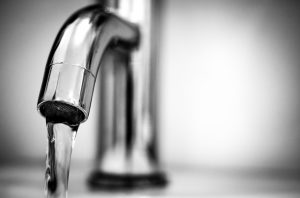There are a number of issues that are common to residential water systems. Knowing what type of water treatment gets rid of your specific water problem is crucial in getting the highest quality water for your family. Water softeners, water filters, water purification, and water conditioners are all effective solutions in treating common issues in residential water supplies. Knowing what plagues your water allows you to have the proper equipment installed to treat it.
Depending on where you live the quality of your homes water can vary a great deal. It is crucial to have your homes water quality tested before installing any type of water treatment system. You need to know what type of issue you are dealing with before it can be treated.
Most Common Water Problems
Hard Water
Hard water is not necessarily a hazard to your health however it can be harmful to your home. There are many common indications that you are dealing with hard water such as: film and stains on dishes and appliances, dull hair, spotted dishes, dry irritated skin, and an increase in the amount of soap and detergent that is needed for cleaning clothes and dishes.
Water softeners are the most common treatment option for hard water. Water softeners are used to remove the calcium and magnesium ions with sodium ions which creates soft water. This helps eliminate nasty build up on appliances, plumbing, fixtures, skin, and so on.
Iron and Rust
It is pretty obvious to see when there is a large amount of rust and iron build up in your homes water. You will begin to see orange streaks staining the sink and spots on clothing. High iron content in your homes water is annoying to homeowners and also damages appliances including washers, water heaters, dishwashers, and bathtubs.
The most common solution for treating high levels of iron in your home water is to have a whole house water filtration system installed. Treating the high iron content with a filter helps to protect against iron build up in your homes plumbing, prevents unsightly build up, removes the smell and taste of iron, keeps appliances running more efficiently, and offers you better tasting, higher quality water.
Foul Taste in Drinking Water
A number of water problems can cause smelly, bad-tasting water. Water with high levels of chlorine, hydrogen sulfide, dissolved solids, arsenic, or iron can all add to the taste of your homes water and not in a good way.
There are a number of problems that can result in smelly and/or foul-tasting water. It is important to have the water tested so that you know exactly what problem you are dealing with when treating your homes water.
The solution for foul tasting, bad smelling water is to have a water filtration and conditioning system installed. These systems address the smell and taste of chlorine through the use of active carbon filters. Oxidation tends to destroy oily tastes and gas smells and more.
The experts at Reynolds Water Conditioning have a solution to your homes unique water quality needs including: arsenic, bacteria, chlorine, rotten egg smell, fluoride, hard water, iron, lead, acid, tannins, radon, and more. More information on our water treatment solutions including water softeners and conditioners, water filtration and purification, reverse osmosis drinking water, and iron & odor removal can be found online at https://reynoldswater.com.

